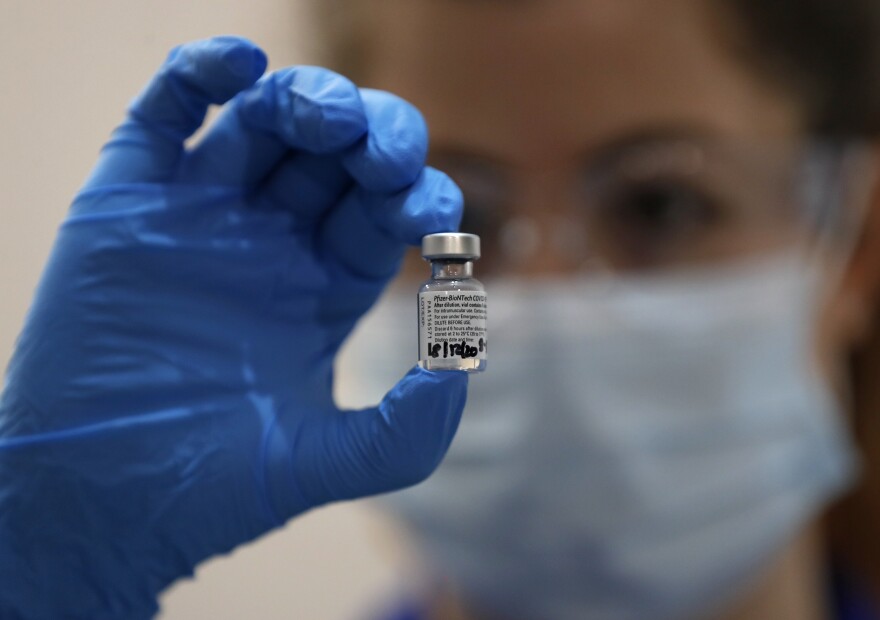Penn Highlands Healthcare announced Tuesday it expects to receive its first batch of COVID-19 vaccines in two weeks. Frontline staff will get vaccinated first to make sure they can continue caring for patients, according to the healthcare system of six hospitals in rural Central Pennsylvania.
In a press call Tuesday, Andrew Kurtz, the vaccination lead for Penn Highlands, said the healthcare system has been coordinating internally and with the Pennsylvania Department of Health to prepare to distribute vaccines to its staff.
“We’re expecting our first batch of Pfizer vaccines in the next two weeks, which will be exclusively for our frontline employees,” Kurtz said. “We expect more vaccines to come, including the Moderna product, a few weeks later.”
Kurtz didn’t specify how many vaccines are in the first batch.
A Food and Drug Administration report released Tuesday says the Pfizer vaccine is 95% effective. A final decision to greenlight the vaccine may come within days, but the CDC says most of the general public will have to wait until 2021 to get the shots.
The U.K. began delivering a COVID-19 vaccine developed by Pfizer and German drugmaker BioNTech to its general public Tuesday.
Kurtz encouraged people to follow the latest information from the CDC and cautioned that plans to approve and distribute vaccines in the U.S. are not set in stone and could still change.
Penn Highlands COVID-19 task force head, Shaun Sheehan, said the system is managing fine so far and the hospitals can expand critical units if necessary. But if cases continue to climb in the area, they could reach capacity.
“Really, all of us are at increased risk of becoming ill with COVID-19 or passing it onto others unbeknowing,” Sheehan said.
He said as of Monday, there were 80 inpatients with active cases of COVID-19 across the system. That number is four times what it was less than a month ago.
Penn Highlands began offering rapid COVID-19 tests last month for people who show symptoms and have high probability of exposure. The system didn’t share how many rapid tests have been administered but said they have adequate supply.







